News & Media
Reappraising the mission of higher education
Participating virtually at the UNESCO World Higher Education Conference 2022, Professor Puleng LenkaBula, Unisa Principal and Vice-Chancellor (VC), said that the university of the future must return to its past in order to rediscover its ontology, epistemology and pedagogy, and that it must be inspired by the past as much as it is by the idea of futures.

The hybrid conference was organised by the United Nations Educational, Scientific and Cultural Organization (UNESCO) and the Government of Spain. Hosted from Barcelona, Spain, from 18 to 20 May, the conference explored the theme Reinventing Higher Education for a Sustainable Future.
The conference was attended by a broad range of stakeholders with an interest in higher education, such as higher education-related intergovernmental organisations, development banks, country policy makers responsible for higher education, university authorities, international networks and think tanks.
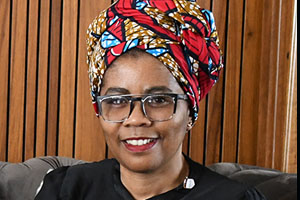
Prof Puleng LenkaBula, Unisa Principal and Vice-Chancellor
The VC spoke as a panellist on the theme Leading universities into the future – finding pathways to transformation. The session was hosted by International Association of Universities (IAU) and examined a number of topics central to this theme. The panel discussion was chaired by Pam Fredman, President of the IAU and former Rector of Gothenburg University, Sweden. The other panellists were Patrick Deane, President of Queen’s University, Canada, Andrew Deeks, President of Murdoch University, Australia, Roberto Semerena Escalante, Secretary-General of the Association of Universities of Latin America and the Caribbean (UDUAL) and Inga Žalėnienė, Rector of Mykolas Romeris University, Lithuania.
Knowledge commons
Commenting on how to open up research and knowledge circulation, the VC said that technology is faster in facilitating knowledge access than human beings are. ‘However,’ she continued, ‘structures of owners of the technology still serve as barriers or threats to freer forms of access and dissemination.’ Addressing the issue of intellectual property rights, she suggested that new, creative ways of thinking, preserving and rewarding academic and research excellence could find a decent balance between rewards, recognition and access.
How can universities evolve?
During the panel’s discussion of a reappraisal of the mission of education, the VC said that knowledge production and the notion of a university have returned to the original idea. ‘It is borderless, thus sees no time, distance, or geography,’ she said. ‘The university can be a virtual space and yet, questions of verification, quality and assurance remain. The universities of the present and the future will be more accessible. In the end, relevance in learning, teaching and research should speak to our lived experiences and aspirations as a people. In other words, a progressive and relevant pedagogy is one that returns knowledge to the people, the real originators of knowledge, the people who inspire and provoke us to think, dream and do. The university of the future must return to its past in order to rediscover its ontology, epistemology and pedagogy. In other words, it must be inspired by the past as much as it is by the idea of futures.’
Achieving sustainable social transformation
Commenting on how to drive social transformation, the VC said that universities must overcome the stigma, image and barrier of being ivory tower institutions. ‘Universities are embedded in society,’ she said, ‘and they should exist for purposes of changing society and not keeping the status quo, especially if the status quo is oppressive, exploitative, exclusive and unsustainable. I thus do not see how we can hope to achieve a much more free, deliberative and accessible higher education when the society in which we live and practise, remains unfair, exclusive and unsustainable.’
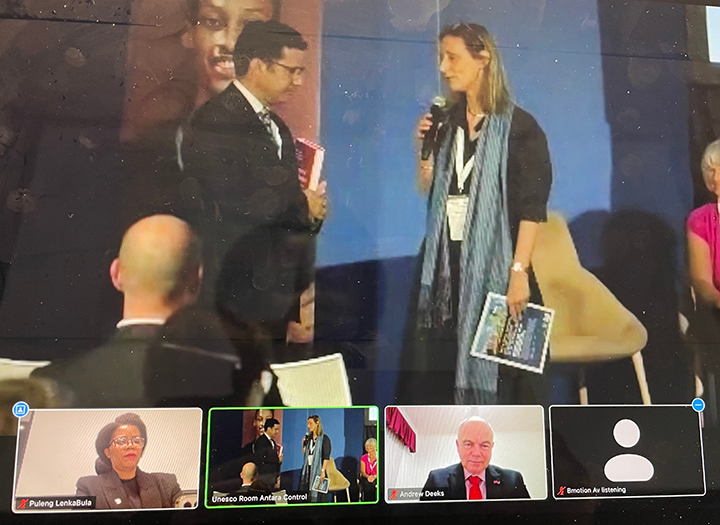
Prof LenkaBula (bottom left) participated virtually in the panel discussion
In conclusion, the VC said that the material advancement of humanity has created an ethical dilemma in so far as sustainability is concerned. ‘The material progress has been at the expense of the environment which, in turn, endangers the survival of the human species itself,’ she said. ‘Poverty, inequality, and social marginalisation have existed side-by-side with material abundance and affluence. What this calls for is an emphasis on the ethical, spiritual and social aspects of human civilisation – what we call Ubuntu/Botho in Africa.’
* By Philip van der Merwe, Editor, Department of Institutional Advancement
Publish date: 2022-05-20 00:00:00.0


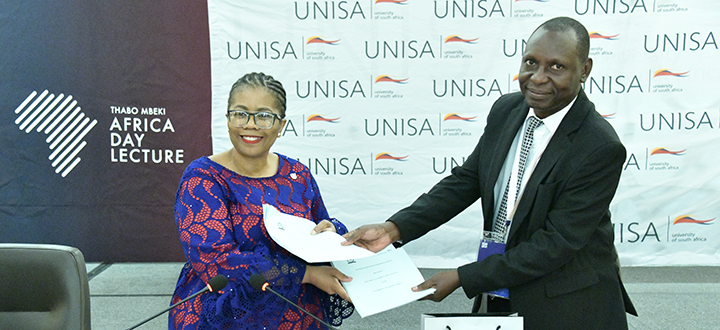 Unisa partners with leading Tanzanian universities to advance African higher education
Unisa partners with leading Tanzanian universities to advance African higher education
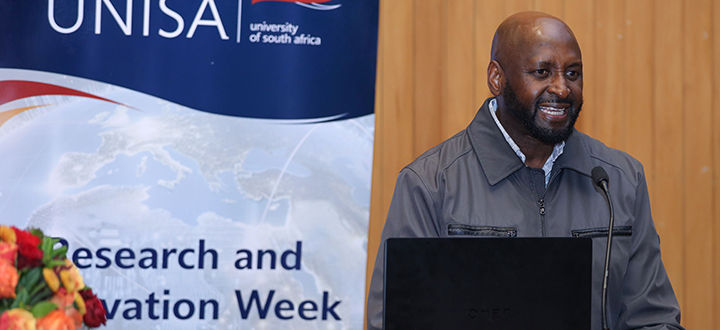 Research with impact – moving beyond bean-counting
Research with impact – moving beyond bean-counting
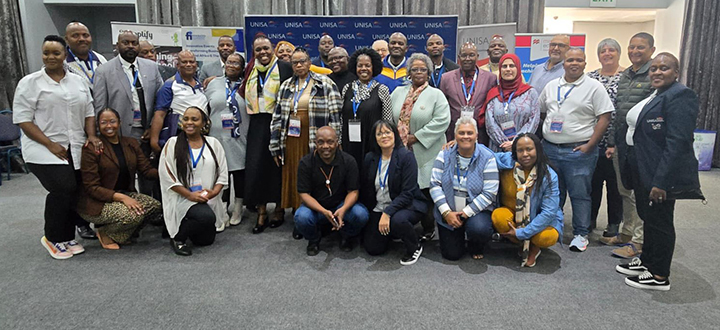 Exploring resources to mitigate the digital divide in rural areas
Exploring resources to mitigate the digital divide in rural areas
 Unisan in the home straight at the NSTF-South32 Awards
Unisan in the home straight at the NSTF-South32 Awards
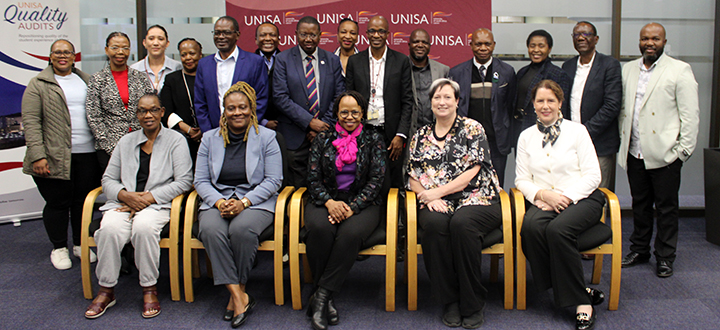 Unisa LIS reflect on successful 2025 external peer review
Unisa LIS reflect on successful 2025 external peer review